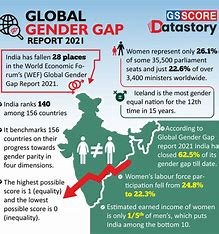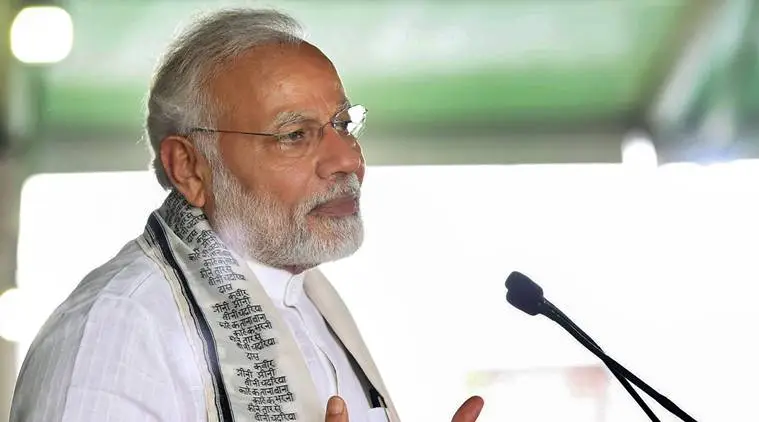By our special Correspondent
New Delhi, June 20 (IVC) The gender gap in India has slipped two points to 129 out of 146 countries of the world, according to the Global Gender Gap report released by the World Economic Forum (WEF) recently.
Last year India was ranked 127, after having jumped eight places from 135 in 2022. India has closed 64.1 per cent of its gender gap in 2024, the report said, this gave policy-makers in the country with a huge window of opportunity to perform better. The” slight regression” according to the report , is mainly due to “small declines “ in the spheres of education and political empowerment.
With a population of 144.17 crore, even two steps back mean staggering numbers. Though India had shown a slight improvement in economic participation and opportunity for the last few years , it would need 6.2 percentage points to match its 2012 score of 46 per cent , the report pointed out.
For achieving the objective, one way will be through bridging gender gap the labor force participation rate (45.9 per cent). To do that , a number of measures must be in place, from ensuring that girls do not drop out of higher education , providing them job skills, ensuring safety at the work place and helping keep a job after marriage by sharing responsibility for chores at home.
In education , the gap between men and women’s literacy rate s 17.2 percentage points wide, leaving India ranked 124th on this count. India has fared better in the political empowerment index, but women’s representation in Parliament continues to be low.
Out of about 800 women contested in the 18th Lok Sabha elections held recently, only 74 were declared elected as against 78 in the last Lok Sabha in 2019 out of a total of 543 members’ strength.More
The gender parity may be climbing upwards worldwide with the global gender gap standing at 68.5 per cent closed in 2024 bu the glacial pace o change- it was 68.4 per cent in 2023- is a grim statistic. At this rate, it will take 134 years to reach full parity, the Global Gender Gap of the WEF pointed out,” roughly five generations beyond the 2030 Sustainable Development Goal (SDG) target”.
Iceland maintains its number one rank (93.5 per cent) , and is also the only economy to have closed over 90 per cent of its gender gap, the report said. All under-performing countries, including India should call for ”Governments to strengthen the framework conditions needed for business and civil society to work together to make gender parity an economic imperative” ,said WEF Managing





